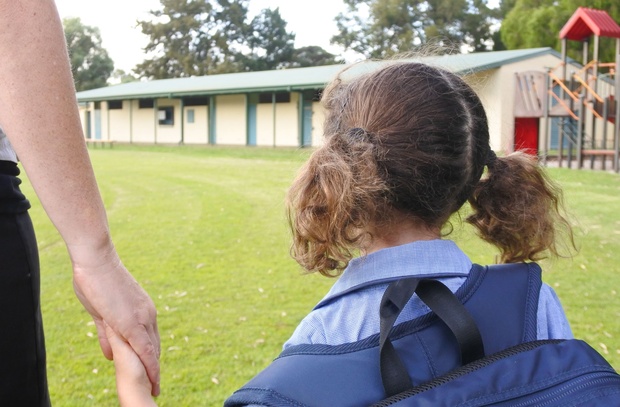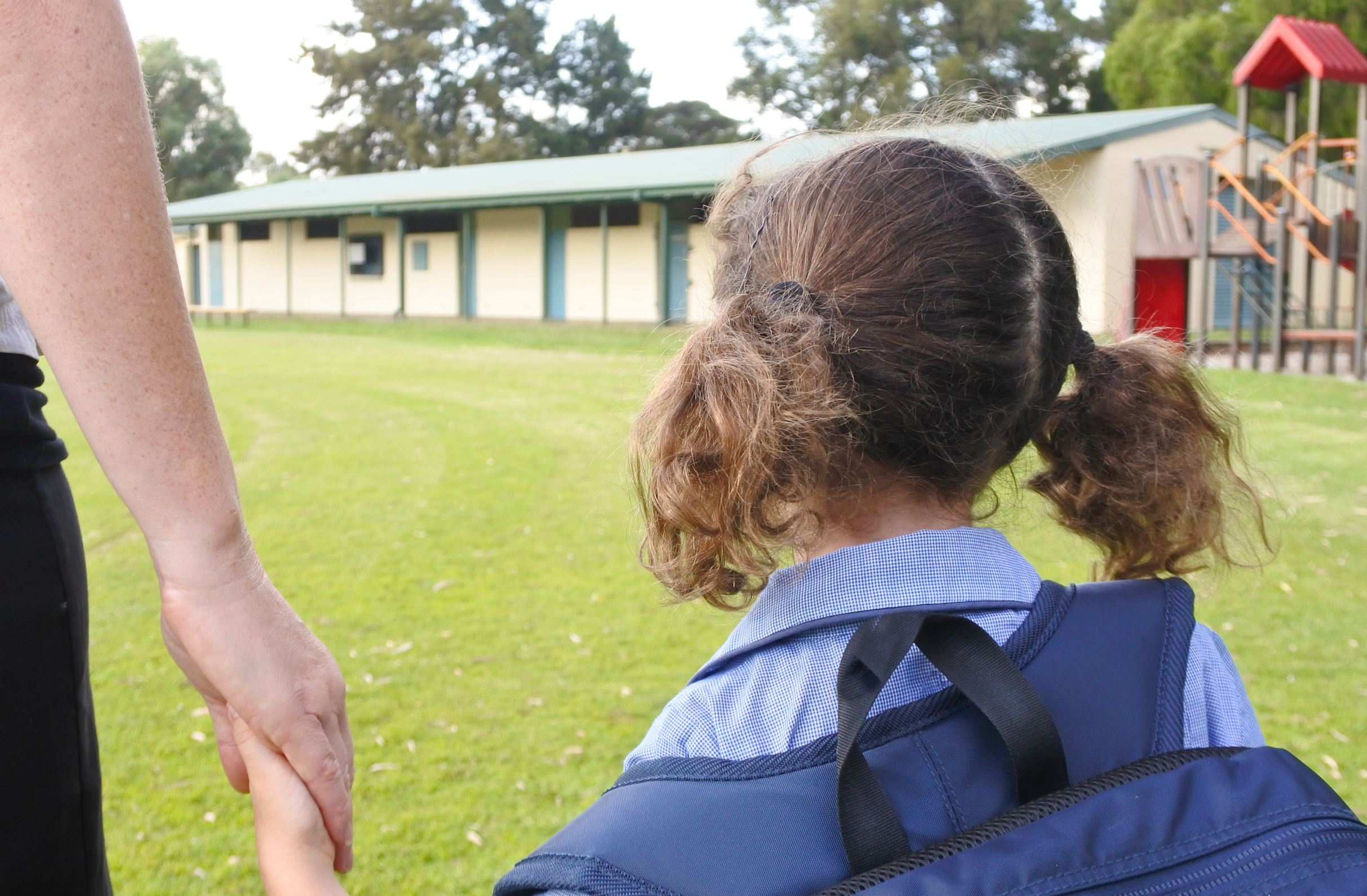Eight years ago, the Facebook group School Refusal Australia was formed by a parent keen to connect with and support other parents who were experiencing the anguish and isolating grief that surrounds school attendance difficulties.
Louise Rogers and Tiffany Westphal joined the admin team in 2019, prior to the pandemic.
The name has since changed to School Can’t – it better reflects the group’s growing understanding of the issue, Westphal says.
Currently, there are 7000 members. Many have given away or have been sacked from their jobs, moved across the country, lost friends and/or divorced due to the acute pressures of school refusal. The group has doubled in size since January.
“We use the word ‘school can’t’, because the language that we use helps shape the kind of response that we have to the issue,” Westphal says.
“And when we talk about (school) refusal, we are typically talking about some choice, as if the child was making an active wilful choice not to comply with our expectations.
“Often our children would like to be able to go to school, but they can’t...”
Westphal says often one of the biggest challenges parents are forced to confront are the misunderstandings and disapproval cast from schools and health professionals.
“The perception [is that] there's a parent who's being slack, who's not pushing the child hard enough, who doesn't have proper boundaries, who's being neglectful, or who's just being walked all over by their child.
“And that's not the case. Seeing it through that lens means that then we are inclined to use rewards and consequences with a child, and we actually end up increasing their stress because we're not addressing the underlying issues at all, we're just applying more pressure to the child,” Westphal shares.
In NSW, pressure can also come in the form of threatening legal letters, she adds. It’s a situation that risks cracking families apart.
“When we increase the pressure on the child and we increase the pressure on the parent, then we run the risk of damaging [their] attachment … because they end up at war with each other.
“We find a lot of parents who are in NSW come to the group very, very distressed because they get a letter saying, ‘We're going to take legal action against you unless your child comes to school’.
“It certainly doesn't happen in Victoria like that. We often get parents come to our group who say ‘I've got this nasty letter and I’m scared, really scared. I don’t know what this means for me and my child is scared – they’re scared they're going be taken away from me as a parent'. And it's quite traumatising…”
Westphal and Rogers point to polyvagal theory to help unpack the neurobiology behind school avoidance.
“A lot of this has to do with the autonomic nervous system and how our nervous system protects us when we are faced with overwhelming stressors. Stress itself is not a bad thing. It’s necessary for growth. But too much of it and we struggle," Rogers begins.
"If we sense danger, whether a physical threat or threat to our identity or a threat to connection and belonging, then patterns of protection emerge and we might see flight, fight or freeze responses.
"When a child is sensing safety, that is when children are best able to engage in learning at school.
“This is very much a subjective experience. Safety is in the eye of the beholder.”
The key for parents, Westphal says, is to identify what lies at the root of a child’s anguish about being at school.
“…they often can't articulate what's going on for them, but there’s this sense that, ‘I don't feel okay’, and it might be that, ‘I just don't feel successful at school’, or they don't feel liked, or they feel like they're always in trouble. Or they can't read, or they can't write, or they can't remember what the teacher just said,” she explains.
“And so, they spent half the day feeling confused, or they are just having trouble meeting the teachers’ expectations or meeting the expectations that their peers have for them.”
Once their nervous system is triggered and the child detects that there is no action they can take to remedy the situation, they enter the ‘freeze state’, Westphal says.
“They shut down, and this happens in classrooms, it happens in bedrooms, it can happen in lots of different places.
“We see children who have this sense of helplessness, that ‘there's nothing I can do that's going to make it better in the classroom’.”
The problem can manifest in different ways, she notes.
“…they might resist wanting to go to school, they might complain about putting a uniform on or complain about being driven to school, or start to get worried the night before school starts on Sunday night about what's going to happen on Monday.
“They might hide their uniform, or do all sorts of things to try and avoid going to school where they're feeling uncomfortable being.
“Or they can get really angry and fight - parents might try and physically wrestle children when they are little and carry a kicking and screaming child against their will.”
For some children, the only way to deal with the distress school causes is to lock themselves away in the family home, she adds.
“They just check out, they try not to be noticed. They kind of try to disappear, almost. And some of them in this state, they won't leave their bedrooms, they lose the ability to be able to talk to people, they curl up, or they escape to the virtual world and become uncommunicative with people because they're distressed,” Westphal says.
At the extreme end, a child can engage with suicidal ideation.
Westphal and Rogers advise parents to firstly identify the specific ‘triggers’ arousing the child’s nervous system and then to work through these to help the child feel calm, safe and supported.
Co-regulation is key here, and patience too, as this process can take time, they say.
The duo believe the existing evidence base for school refusal behaviour has not addressed neurodevelopmental conditions, nor has it properly analysed the school environment.
“The difficulty is that schools and many psychologists and our elders are often very caught up in this framework of understanding that children should be compliant and that what we're seeing is a behaviour problem,” Westphal says.
“And our eight years’ worth of experience in this group tells us that it's not about compliance and it's not about behaviour at all. And in fact, when we see it through that lens, we make it worse.”
Prevention and early intervention at the classroom level is critical, they say.
Teacher training should also look to cover school attendance issues, especially given the rising number of children affected since the start of the pandemic, they warn.
"...I have heard of schools who are doing it very differently now, where they are understanding the whole business about the impact of self-regulation for a teacher, and how when a teacher is feeling regulated and calm, that is catching to the children…” Westphal says.
Lifeline 13 11 14
beyondblue 1300 224 636
Kids Helpline 1800 55 1800
















